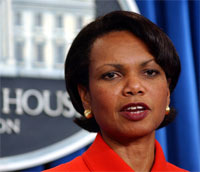Posts By This Author
What Christian Ethics Demands, But Most Christians Have Yet to Seriously Try
What good would it do for three kayaks, three canoes, and a rubber dinghy to paddle into the path of a Pakistani steamship? For a tiny fishing boat with unarmed, praying Americans aboard to sail toward an American battleship threatening Nicaragua? For an 80-year-old lady in a wheelchair to stop in front of advancing Filipino tanks? Or for nonviolent protesters to defy the communist rulers of the Soviet Empire?
Soviet communism collapsed. The tanks stopped and a nonviolent revolution succeeded. The American battleship left and the threat of invasion faded. And the U.S. shipment of arms to Pakistan stopped.
Those are just a few of the many dramatic successes of nonviolent confrontation in the last several decades. Everyone, of course, knows how Mahatma Gandhi’s nonviolent revolution eventually defeated the British Empire and – as the powerful film Selma now reminds us – Martin Luther King Jr.’s peaceful civil rights crusade changed American history. There have been scores upon scores of instances of nonviolent victories over dictatorship and oppression in the last 50-plus years. In fact, Dr. Gene Sharp, the foremost scholar of nonviolence today, has said that the later 20th century saw a remarkable expansion of the substitution of nonviolent struggle for violence. More recent scholarship has not only confirmed Sharp’s comment; it has also shown that nonviolent revolutions against injustice and dictatorship are actually more successful than violent campaigns.
The Biblical Case for Limiting Money in Politics
While there are no biblical texts speaking directly to the issue of money in politics, biblical principles are still relevant, and people of faith have an important role to play in the emerging debate about the future of our democracy. Before exploring those principles, however, it is important to understand the serious issues of inequality currently present in our system, and the correlation between inequality and the money flooding our political system.
The richest 1 percent own more of the nation’s wealth than the bottom 90 percent. The richest one-tenth of one percent have as much pre-tax income as the bottom 120 million Americans.
In Affluence and Influence, political scientist Martin Gilens concludes that, “The preferences of the vast majority of Americans appear to have essentially no impact on which politics the government does or does not adapt.” He details the data throughout his book that clearly demonstrates policy makers are only listening to the wealthy donor class. This situation has been made even worse by the Supreme Court’sCitizens United in 2010, which allowed a huge influx of money to flood our political system after declaring the personhood of corporations.
The Court’s more recent decision in McCutcheon v FEC made matters even worse. Before McCutcheon, one person was able to contribute up to $123,000 to political candidates and parties. In striking down this aggregate limit, the Court paved the way for individuals to contribute more than $3.5 million directly to candidates and party committees. In a report detailing the potential impact of McCutcheon, Demos predicts the decision could result in more than $1 billion in additional campaign contributions by 2020.
Beyond One-Sided Either/Or Christianity
We live in a church context where so many embrace unbiblical either/or understandings of Christianity: Either evangelism or social action, either inward journey or outward journey. And on and on.
It is the widespread onesidedness that makes Rich Nathan’s new book so exciting.
Economic Inequality: Should We Call It Sin?
While having lunch recently with Harvard Professor Robert D. Putnam, I was asked an interesting question.
Putnam is appalled at the radical lack of equality of opportunity in the U.S. today, and he wanted to know if evangelical preachers would dare to say what his pastor said when he was a teenager. Putnam told me that back then, in the midst of Martin Luther King’s great campaign against segregation, his devout Methodist pastor dared to preach that “racism is a sin.”
Professor Putnam asked me, as an evangelical, whether evangelical pastors today would be ready to declare today’s great economic inequality of opportunity a sin. That’s a great question.
Resigning From the AARP
I’m a senior. And I’m mad. In fact, I am resigning from the AARP.
The America Association of Retired People has about 38 million members and is one of the biggest, most influential lobbies in Washington. It has done many good things for older Americans, but in some important ways it is just plain wrong — selfish and guilty of intergenerational injustice.
As Fareed Zakaria pointed out is a 2011 column in Time, the federal government spends about $4 on every senior over 65 and only $1 on every child under 18. “That is a statement about our priorities,” Zakaria rightly says, “favoring consumption over investment, the present over the future, ourselves over our children.” Partly as a result the poverty rate for children (22 percent) is much higher than that for seniors (9.7 percent).
God Loves Gays, and So Should We
What President Obama's Budget Means for Poor People
If a budget is a moral document, what should be said about the president's proposed budget for 2010? I focus here on what this budget proposal says about justice for poorer Americans.
Ron Sider's The Scandal of Evangelical Politics
Tragically, Christian political activity today is a disaster. Christians embrace contradictory positions on almost every political issue.
The Evangelical Factor in Middle East Peace
 The Nov. 27 Annapolis meeting on Israel/Palestine has launched us into a momentous one-year process to seek a permanent peace agreement between Israel and its neighbors. What is at stake is whether after more than 50 years of ghastly conflict and widespread bloodshed, genuine peace can come to one of the most dangerous areas and most divisive problems in our world.
The Nov. 27 Annapolis meeting on Israel/Palestine has launched us into a momentous one-year process to seek a permanent peace agreement between Israel and its neighbors. What is at stake is whether after more than 50 years of ghastly conflict and widespread bloodshed, genuine peace can come to one of the most dangerous areas and most divisive problems in our world.
Important steps were [...]
Evangelical Leaders Meet Rice on Middle East Peace
 On Friday, Oct. 26, I was part of a small delegation of evangelical leaders who met with Secretary of State Condoleezza Rice. We were there to follow up the letter we sent to President Bush in late July to encourage more vigorous U.S. efforts to promote a fair, two-state solution for Israel/Palestine.
On Friday, Oct. 26, I was part of a small delegation of evangelical leaders who met with Secretary of State Condoleezza Rice. We were there to follow up the letter we sent to President Bush in late July to encourage more vigorous U.S. efforts to promote a fair, two-state solution for Israel/Palestine.
Secretary Rice understands the formidable obstacles. She spoke of a little moment of [...]
Do We Care Enough?
Has Evangelism Become Politically Incorrect?
Living out the full teaching of Christ.
Is God Really on the Side of the Poor?
Is God, as some liberation theologians have recently suggested, biased in favor of the poor? The Bible has a clear answer. God is not partial.








